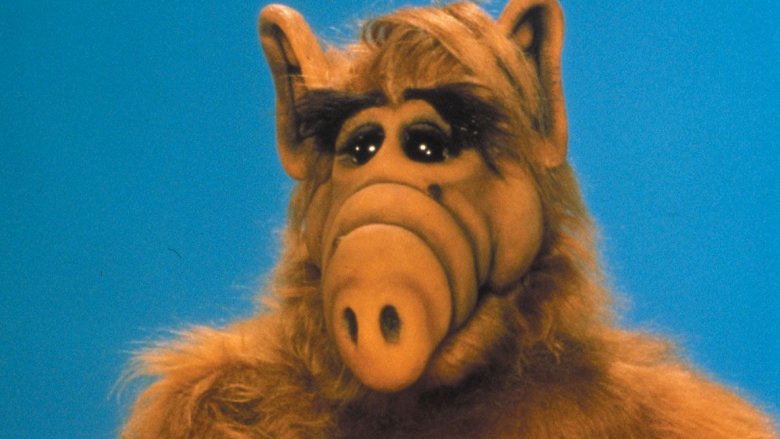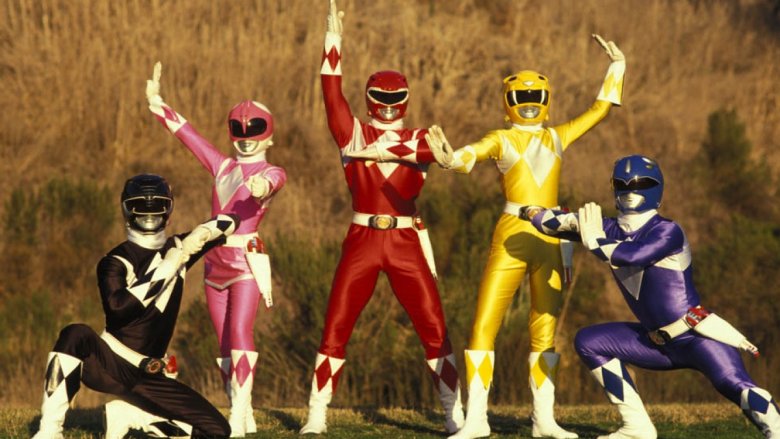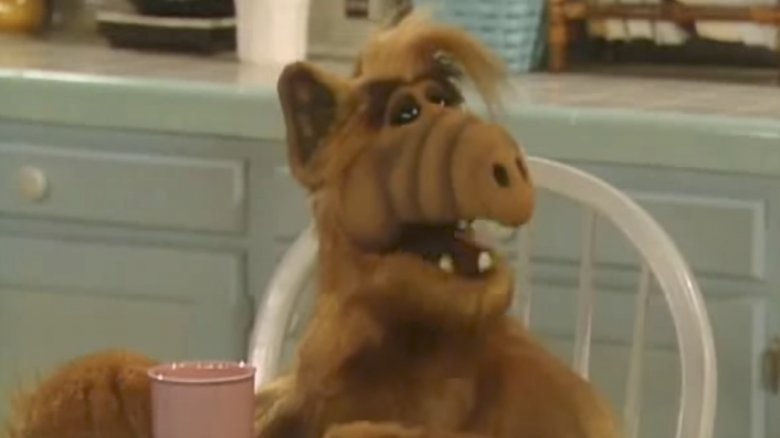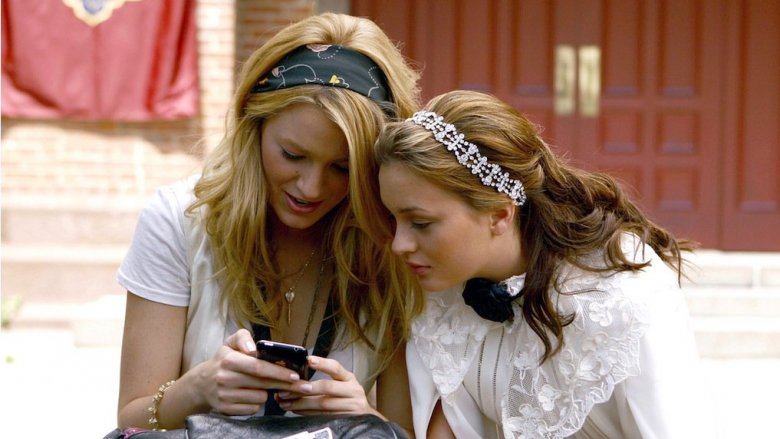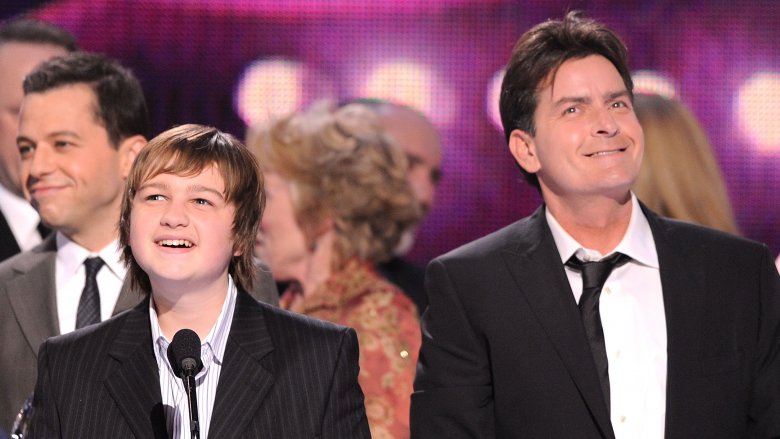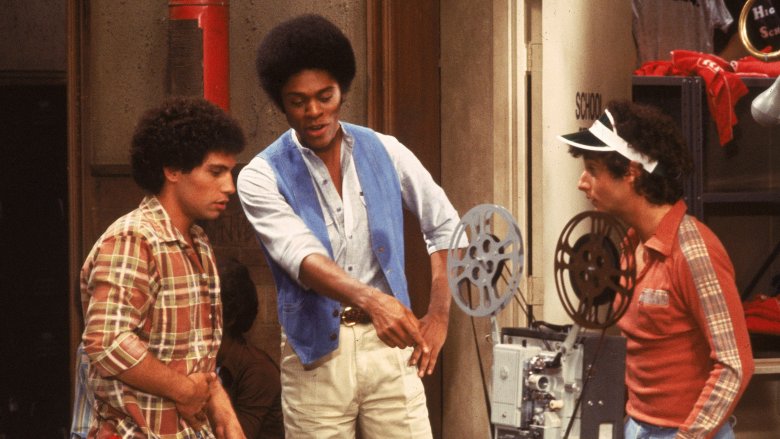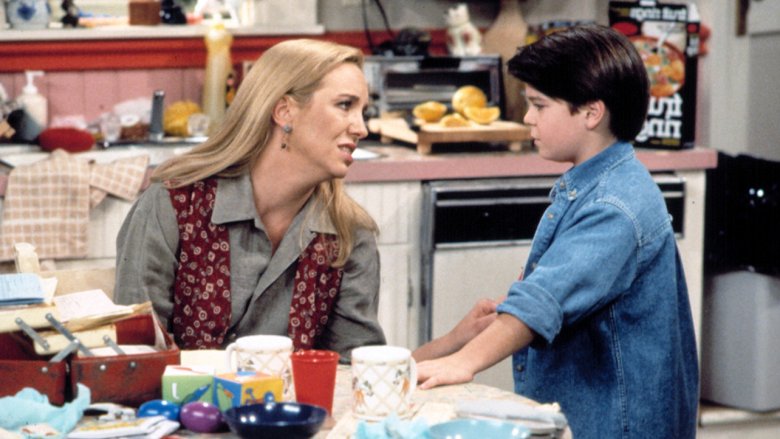TV Shows That All The Actors Hated
For a working actor, getting cast on a major TV show is a dream come true and a validation of many years of hard work. For that show to become a hit with audiences or critics is even better, but, as the old saying goes, be careful what you wish for. Long hours, creative disputes, and clashing personalities can make acting on a high-profile TV project tedious, stressful, and frustrating. The result: a product that the actors regret. Here are some shows despised by just about their entire casts.
Mighty Morphin' Power Rangers
In 2012, original Pink Ranger Amy Jo Johnson told No Pink Spandex that while the early '90s kiddie action show "taught her so much," she also had some qualms. Mighty Morphin' Power Rangers was a non-union show and not as subject to certain salary rules. "We were being paid, I think, tops $600 a week." And considering that the series shot two episodes a week, that works out to just 300 bucks per episode ... and no residuals for reruns.
Original Red Ranger Austin St. John told San Francisco Comic Con that he enjoyed his time on the show, but that the cast "had very little creative say when it came to the script or how we might change a line or anything." There's one wince-worthy piece of dialogue in particular that he wishes he would have refused to say. In the episode "No Clowning Around," he had to yell at the villainous Pineapple the Clown, "You're going down, clown!"
Johnson and St. John's issues are nothing compared to what Blue Ranger David Yost faced. At the time, he was coming to terms with his homosexuality, for which he says he was constantly harassed. In an interview with No Pink Spandex, Yost says it got so bad that he quit the show: He walked off the set one day during a lunch break, having "been called 'f*****' one too many times from creators, producers, writers, directors."
ALF
The goofy '80s sitcom about a furry wisecracking alien hiding out in a suburban family's house and trying to eat their cat was an inexplicable hit that ran on NBC for four years. Perhaps more inexplicable is that the ALF set was arguably one of the most unpleasant workplaces in TV history. Show creator and ALF puppeteer/voice actor Paul Fusco told The Hollywood Reporter that the show was technically difficult to produce, what with the trap doors all over the set where ALF had to be set up and actors having to navigate all those holes without looking down and ruining the illusion. A single episode could take as much as 25 hours to shoot, spread over two days. Anne Schedeen, who starred as (human) character Kate Tanner, told People in 2000 that "there was no joy on the set" and that some of the adult actors had "difficult personalities." Costar Andrea Olson (teen Tanner daughter Lynn) attributed that tension to "playing second fiddle to a puppet." Max Wright, who played apoplectic dad Willie Tanner, said that he was "hugely eager to have it over with." During the final season (1989-90), Wright reportedly got so frustrated that he came unglued one day and tried to attack the ALF puppet, screaming, "Put us on sticks! We're all puppets here!"
Gossip Girl
One of the hottest shows of the 2000s among teens and twenty-somethings was the CW's prep school soap Gossip Girl. It made stars out of cast members like Blake Lively and Chace Crawford, but that doesn't mean they actually liked the vehicle that brought them fame and fortune. In 2015, Lively told Allure that she had regrets about playing the evil Serena van der Woodsen. "People loved it, but it always felt a little personally compromising," Lively said. "You want to be putting a better message out there." When asked about filming the final season of the show in 2012, Crawford told Us Weekly that portraying Nate Archibald on the show was demeaning. "My dignity is somewhere on set. I think it happened around season two. Leading into season three, it was all out the window." Penn Badgley, who portrayed Dan Humphrey, had just starred on several short-lived shows, and initially turned down the gig. While he appreciated the chance, he told Vulture that it was almost a toss-up between acting on the show and taking a job as a waiter. The bad taste in his mouth never went away. While promoting his movie Greetings from Tim Buckley in 2013, Badgley told Salon that he was proud of the movie and that "To be proud of something is a really nice feeling," adding, "it's a new feeling, and it's something that I wanna keep going with."
The Star Wars Holiday Special
Not many shows that air once become legendary, but the Star Wars Holiday Special did, because it's just that terrible. Airing at the height of Star Wars fever in 1978, this sci-fi patchwork written by TV variety show veterans centered around the "Life Day" celebrations on Chewbacca's home planet. Much of the action featured Chewbacca's family watching holographic television; Diahann Carroll did a mildly erotic dance, Harvey Korman played a multiple-armed TV chef, and Bea Arthur performed a song from the Mos Eisley Cantina. Original Star Wars cast members Harrison Ford, Mark Hamill, and Carrie Fisher made very brief appearances, and they were very sorry about that. At a press event for Star Wars: The Force Awakens in 2015, Ford called the special "an embarrassment," while Fisher called it "awful, and I don't mean awful in a good way." Hamill said in a Reddit "Ask Me Anything" session that he thought the Holiday Special "was a mistake from the beginning." He added that he initially turned it down, but that Lucas said the show would "help keep Star Wars in the consciousness, and [he (Hamill)] wanted to be a team player."
The Brady Bunch Hour
The Brady Bunch was never a huge ratings hit, but it did so well in reruns that it spawned multiple revivals, including 1976's The Brady Bunch Hour, a technicolor, song-and-dance-filled variety show starring the Brady cast in character. Eve Plumb, the original Jan Brady, thought it looked so bad that she refused to appear, replaced by an actress named Geri Reischl. Plumb's premonition was correct: In 2002, TV Guide called the show the fourth-worst TV series of all time. In the Brady retrospective Love to Love You Bradys, Susan Olsen (Cindy Brady) called The Brady Bunch Hour "spectacularly bad." In his own memoir Growing Up Brady, Barry "Greg Brady" Williams agreed, calling the show "incredibly bad." He also noted that the one cast member who loved the show was the one who hated the original Brady Bunch. While playing TV dad Mike Brady, Robert Reed frequently argued with writers and producers over what he thought was poor material. However, when approached for The Brady Bunch Hour, Reed said, 'What fun! This'll be a hoot!" Maybe, but it only lasted nine episodes.
Two and a Half Men
Many TV critics didn't care for this lewd, crude, and incredibly popular CBS sitcom about an oversexed jingle writer (Charlie Sheen) who lived with his nerdy divorced brother (Jon Cryer) and his nephew (Angus T. Jones). Some of the show's cast didn't much like the show either. In 2012, Jones had a literal "come to Jesus" about Two and a Half Men and released a video for his church in which he discussed his faith and trashed his own show. "I'm on Two and a Half Men, and I don't want to be on it," Jones said. "Please stop watching it and filling your head with filth." The titular half-man ultimately left the show, much like his TV uncle, who exited in a blaze of not-quite-glory in 2011 after public tirades, addiction issues, and a spat with show creator Chuck Lorre. Sheen said in an interview with TMZ that he "violently hates" Lorre, and that "he's a stupid, stupid little man." Cryer handled the tumult with an even hand, at least publicly. In his 2015 memoir So That Happened, Cryer wrote, "An astounding number of people stood up for Charlie, as though people should be able to show up to work rarely, if at all, verbally abuse their co-workers publicly with anti-Semitic slurs, get arrested on a regular basis—as well as abuse drugs to the point where they can barely function—and not have their high-paying jobs threatened."
Welcome Back, Kotter
In 1978, Welcome Back, Kotter star Marcia Strassman was shockingly forthright with her feelings about the series in an interview with People. "I'm miserable," the actress said about playing the wife of Gabe Kaplan, the star and co-creator of the show. "Gabe runs hot and cold, one day your best friend, the next day not speaking." She added, "I hate the series. I pray every day for a cancellation." Strassman tried in vain for more than a year to get out of her contract and then made comments about Kaplan similar to the ones in People at a Kotter press junket. When she went back to work, the show's "Sweathogs"—the group of student misfits the show's namesake looked after at the high school in which he worked—"stood in a circle around me to protect me from Gabe," but Kaplan gave her the silent treatment. The animosity between Mr. and Mrs. Kotter soon forced the cast members to choose sides; Ron Palillo (Horshack) stayed loyal to Strassman, while Robert Hegyes (Epstein) stood with Kaplan. By the time Kotter left the air in 1979, Strassman and Kaplan had already left.
Grace Under Fire
Like Roseanne Barr and Tim Allen, Brett Butler was a stand-up comic who got an ABC sitcom based on her comedy routines. Her blue-collar, straight-shooting style lended itself well to Grace Under Fire, a top five hit during its first season (1993–94). Butler played a single mother and recovering alcoholic, and some of the star's similar, real-life troubles made the set a chaotic place: she fought with showrunners so frequently that the show employed five different executive producers in five years, and she sought treatment for substance abuse multiple times during the show's run. In 1996, Jon Paul Steuer, who played Butler's son, quit; according to insiders, Steuer's parents yanked him off the show after Butler reportedly flashed the 12-year-old actor. Just before all that happened, Julie White, who played neighbor Nadine, quit at the end of the fourth season because she was, of all things, "hideously bored."
